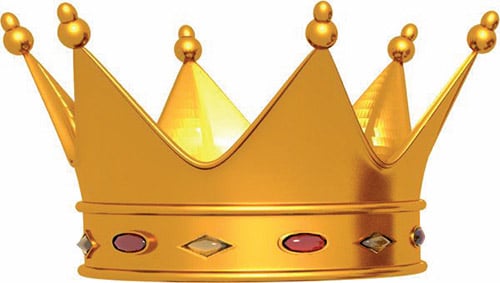
What is a king? It’s a good question to ask King Constantine (he has no last name). In 1964, at the young age of 23, Constantine ascended the throne and became king of Greece. Alas, it wasn’t for long. In April 1967, a military coup forced him to begin a 40-year exile. He was even stripped of his Greek citizenship and passport in 1994. In a very quiet way, he was recently allowed to return to live in Greece. But “King” Constantine has no palace, no royal guard and no loyal subjects who come to him. And he still has no last name.
It seems obvious, then, that a king is more than just a title or an impressive crown.
Before Rosh Hashanah, the Alter of Kelm would post on the door of the famed Kelm Yeshiva a handwritten sign with the words “Ein melech b’lo am”—There is no king without a nation. What message was the great baal mussar teaching his students to focus on as they approached Rosh Hashanah?
To gain a true appreciation of the richness and significance of the Yomim Noraim, the easiest place to look is in the special Shemoneh Esreis we recite during these holy days. The Sages included in these tefillos the essential elements of the day. In the closing of the third blessing said during all the Shemoneh Esreis of the Yomim Noraim is “…v’simloch atah Hashem livadecha”—“Your reign, Hashem, should be accepted by the entire world.” There is no denying that judgment is at hand; yet our main focus is on totally accepting Hashem’s sovereignty and proclaiming Hashem’s sovereignty to the world.
By definition, a king is the one who rules over a nation or country. A king without a nation is not a king. That’s why it is so crucial for us to pray as part of a greater group—a nation, am Yisrael.
It’s easy to get preoccupied with our own needs on Rosh Hashanah, as we pray that Hashem grant us life, health, livelihood, nachas and so much more. But doing that alone misses the point. Relating to Hashem as King means seeing Him and talking to Him as part of a nation. This is the message of the Alter of Kelm. If we don’t connect and unite with others, then we’re not really coronating Hashem. We need to think about the needs of our friends, neighbors and associates and ask Hashem to grant them a sweet new year. That is truly accepting the reign of Hashem.
This message is in the opening verse of Parshas Nitzavim, which is always read the Shabbos prior to Rosh Hashanah: “Atem nitzavim hayom kulchem lifnei Hashem …”—“Klal Yisrael, you are all standing here today in front of Hashem…” The Zohar says the word “hayom,” today, refers to Rosh Hashanah. That’s why Hashem stresses that everyone is standing together. That is the only way to proclaim Hashem as King. We all need to be together.
Further, the baalei mussar remind us that in order to receive a meritorious judgment, one should be forgiving to those who wronged him. The Gemara in Rosh Hashanah says that one who does this is forgiven for all his sins. Rav Wolbe explains that one who lets others’ wrongs slide and forgives them is demonstrating that he is not living life as an individual, but rather as part of a considerate, cohesive group. Something interesting: In Eretz Yisrael, a yom tov normally lasts only one day, but Rosh Hashanah lasts two days, just like here. The Gerer Rebbe says the reason is because on Rosh Hashanah, all Jews need to be united in accepting Hashem’s sovereignty. With that acceptance, our appropriate observance of the mitzvos will follow.
This is the message of the Alter of Kelm—“yachad” (together)—we need to join together and be together.
Being together is a beautiful concept, but it’s not always easy to do. Uniting as one includes accepting and appreciating every Jew no matter how he or she dresses, no matter what community they are from or what nusach they daven, and whether or not their behaviors are different from ours. We all left Egypt together, we all stood together at Har Sinai and we all will greet Moshiach together. We need to cast away our perceived stereotypes of others, pray that they have a sweet new year and deal with our fellow creations of Hashem with a maximum amount of kindness and understanding. With that effort, we will all approach Hashem as His united nation and proclaim Hashem, our King, as King of the entire universe.
By Rabbi Baruch Bodenheim
Rabbi Baruch Bodenheim is the associate rosh yeshiva of Passaic Torah Institute (PTI)/Yeshiva Ner Boruch. PTI has attracted people from all over northern New Jersey, including Teaneck, Bergenfield, Paramus, Rockaway and Fair Lawn. He initiated and continues to lead a full multi-level Gemara learning program in the evenings, gives Halacha and hashkafa shiurim on Shabbos and, more recently, has spread out beyond PTI to begin a weekly beis midrash program with in-depth chavrusa learning in both Livingston and Springfield.










